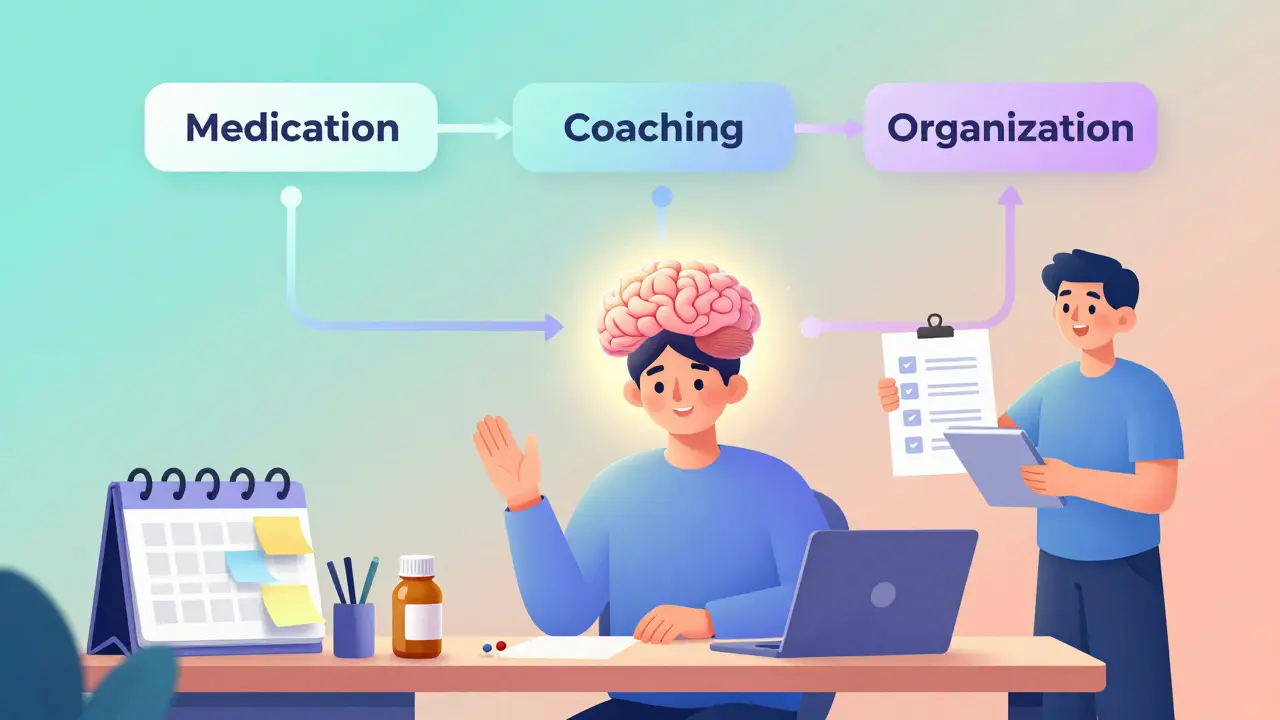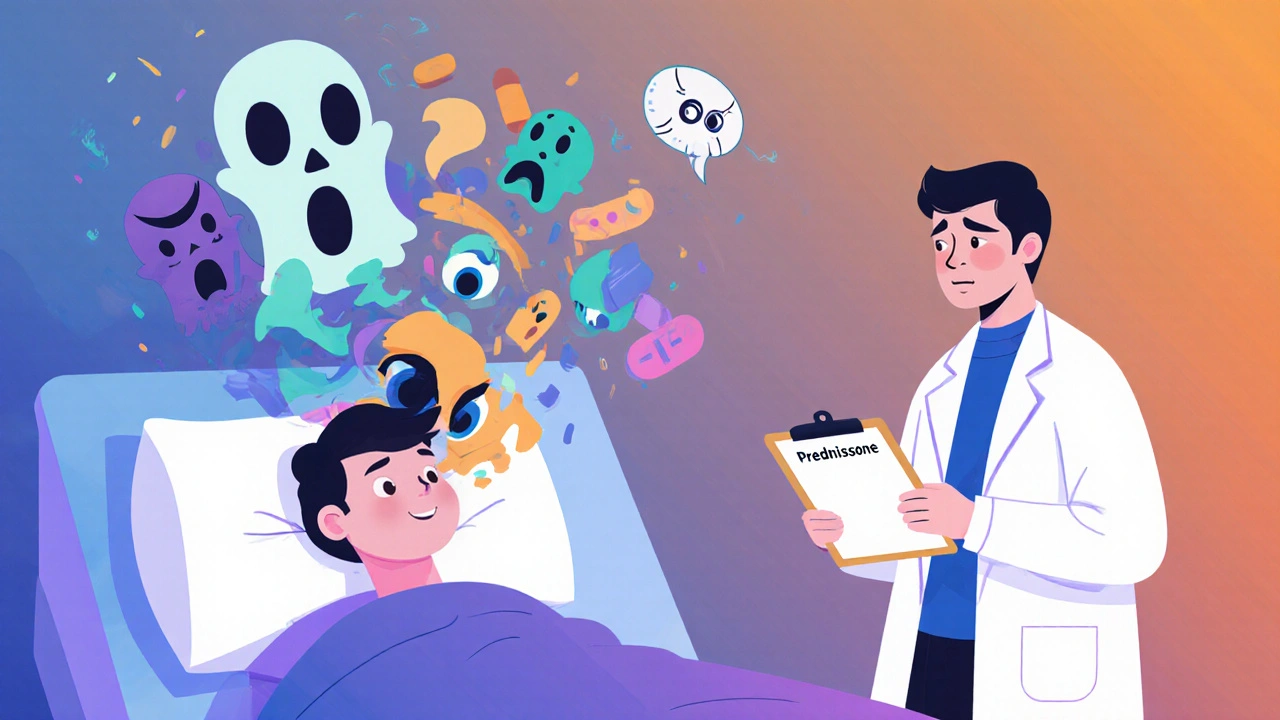ADHD in adults isn't just forgetfulness - it's executive dysfunction that affects work, relationships, and daily life. Learn how medication, coaching, and practical organization work together to create real, lasting improvement.
Mental Health: Treatments, Meds, and Everyday Tools
Feeling overwhelmed by treatment options or unsure where to start? This page pulls together clear, practical resources on common mental health topics — from medication guides to personal-growth tips and new research. You’ll find plain-language articles on antidepressants like Wellbutrin, alternatives when a drug doesn’t fit, managing vulnerability, and surprising links between the immune system and schizophrenia.
Medications and what to watch for
Want a quick take on meds? Our Wellbutrin piece explains how bupropion works (it boosts norepinephrine and dopamine), who it helps, common side effects, and dosing basics. If Wellbutrin SR didn’t work for you, the alternatives article compares other options used in 2025, like mirtazapine (Remeron), SSRIs, and combination strategies such as pairing an SSRI with bupropion. Read those articles to learn practical things: what side effects people actually report, which meds can raise seizure risk, and when doctors typically change a prescription.
When you read any drug guide here, look for three clear bits of information: what symptom it treats, the most common side effects to expect, and safety checks (interactions, medical conditions that matter). Use that to talk with your clinician — bring a list of current meds, health history, and specific symptoms so the conversation is fast and focused.
Everyday coping and knowing when to get help
Medication is part of the picture, but everyday habits change how you feel right now. The vulnerability post explains simple, actionable moves: practice small honest conversations, set one tiny discomfort challenge per week, and track what changes in mood. The piece on schizophrenia and autoimmune disorders highlights recent findings that link immune activity and psychiatric symptoms — this can affect how doctors think about treatment and follow-up for some people.
Practical tips you can use today: keep a sleep and activity log for two weeks, try brief behavioral goals (ten minutes of walking or a five-minute breathing break), and write one sentence each night about what went OK. If thoughts of hurting yourself or others show up, contact emergency services or your provider immediately. If you’re unsure, call a local crisis line — getting help fast matters.
Use this category as a hub: click through the detailed drug guides, read personal-growth pieces for coping skills, and check the research article if you follow medical developments. We also list domestic and international patient support resources to help you find a local clinician or online options. Bookmark useful posts, and bring them to your next appointment so your care stays practical and targeted.
Got a specific question after reading? Make a note, ask your clinician, or use the site search to find related posts. Small steps and clear info make mental health care easier to manage.
Steroid-induced psychosis is a dangerous but treatable side effect of high-dose corticosteroids. Learn how to recognize early signs, respond in an emergency, and manage it safely with tapering and low-dose antipsychotics.
Explore how Dialectical Behavior Therapy targets the emotional triggers of bulimia, its evidence base, comparison with CBT, and practical steps for successful treatment.
Curious about Wellbutrin? This article takes a deep dive into what makes it different from other antidepressants, how it works, who it helps, and what side effects to watch for. We break down everything from dosing tips to surprising benefits, using real-life examples and statistics. If you or someone you know wonders about Wellbutrin, you'll find clear, helpful answers here. Discover why so many prefer this medication, and get straightforward advice for everyday coping.
Navigating the world of antidepressants can be daunting, especially if Wellbutrin SR isn't quite the fit you expected. This article delves into five notable alternatives available in 2025 that offer varied approaches to treating major depressive disorder. From Remeron's unique mechanism to the combined efforts of Lexapro and Wellbutrin SR, the options listed here cater to diverse needs and chemical responses. Understanding these alternatives empowers individuals to make informed decisions on their mental health journey. Get to know the pros and cons of these medications to find what might work best for you.
In my latest blog post, "Discomfort and Vulnerability: How to Embrace Your Authentic Self", I explore the importance of embracing our vulnerabilities to live a more authentic life. I share how discomfort can be a powerful catalyst for personal growth, pushing us beyond our comfort zones. I also discuss the liberating experience of acknowledging our flaws and insecurities, and how this leads to self-acceptance. The journey of embracing our authentic selves may not be easy, but it's certainly rewarding. So, let's take off our masks and celebrate our unique selves, warts and all.
In my recent research, I discovered a fascinating connection between schizophrenia and autoimmune disorders. It turns out that individuals with autoimmune diseases are more likely to develop schizophrenia, suggesting a possible link between the immune system and this mental illness. Researchers believe that inflammation in the brain caused by autoimmune reactions may contribute to schizophrenia symptoms. This discovery could potentially lead to new treatments targeting the immune system to help manage schizophrenia. As a blogger, I'm excited to see where further studies will take us in understanding the complex relationship between our immune system and mental health.







